BMW X3 vs Volvo XC40 - Differences and prices compared
Compare performance (398 HP vs 197 HP), boot space and price (51300 £ vs 36800 £ ) at a glance. Find out which car is the better choice for you – BMW X3 or Volvo XC40?
Costs and Efficiency:
When it comes to price and running costs, the biggest differences usually appear. This is often where you see which car fits your budget better in the long run.
Volvo XC40 has a noticeable advantage in terms of price – it starts at 36800 £ , while the BMW X3 costs 51300 £ . That’s a price difference of around 14495 £.
Fuel consumption also shows a difference: BMW X3 manages with 2.80 L and is therefore clearly more efficient than the Volvo XC40 with 6.50 L. The difference is about 3.70 L per 100 km.
Engine and Performance:
Under the bonnet, it becomes clear which model is tuned for sportiness and which one takes the lead when you hit the accelerator.
When it comes to engine power, the BMW X3 has a clearly edge – offering 398 HP compared to 197 HP. That’s roughly 201 HP more horsepower.
In acceleration from 0 to 100 km/h, the BMW X3 is decisively quicker – completing the sprint in 4.60 s, while the Volvo XC40 takes 7.60 s. That’s about 3 s faster.
In terms of top speed, the BMW X3 performs clearly perceptible better – reaching 250 km/h, while the Volvo XC40 tops out at 180 km/h. The difference is around 70 km/h.
There’s also a difference in torque: BMW X3 pulls significantly stronger with 670 Nm compared to 300 Nm. That’s about 370 Nm difference.
Space and Everyday Use:
Beyond pure performance, interior space and usability matter most in daily life. This is where you see which car is more practical and versatile.
Both vehicles offer seating for 5 people.
In curb weight, Volvo XC40 is to a small extent lighter – 1688 kg compared to 1930 kg. The difference is around 242 kg.
In terms of boot space, the BMW X3 offers noticeable more room – 570 L compared to 452 L. That’s a difference of about 118 L.
In maximum load capacity, the BMW X3 performs noticeable better – up to 1700 L, which is about 372 L more than the Volvo XC40.
When it comes to payload, BMW X3 slight takes the win – 570 kg compared to 532 kg. That’s a difference of about 38 kg.
Who wins the race in the data check?
The BMW X3 holds a decisive overall lead in the objective data comparison.
This result only shows which model scores more points on paper – not which of the two cars feels right for you.
Costs and Consumption
View detailed analysis
Engine and Performance
View detailed analysis
Dimensions and Body
View detailed analysis
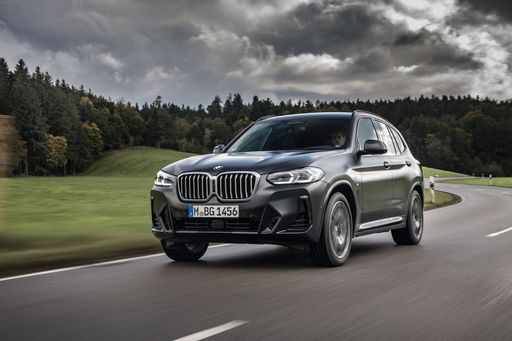
BMW X3
BMW X3
The BMW X3 mixes Bavarian poise with everyday practicality, delivering a composed ride and a cabin that feels both premium and lived-in. It’s the sort of SUV that lets you enjoy sporty handling without sacrificing family-friendly space, so you get fun and sense in one neat package.
details
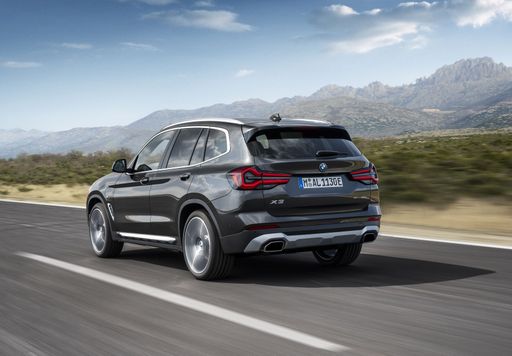
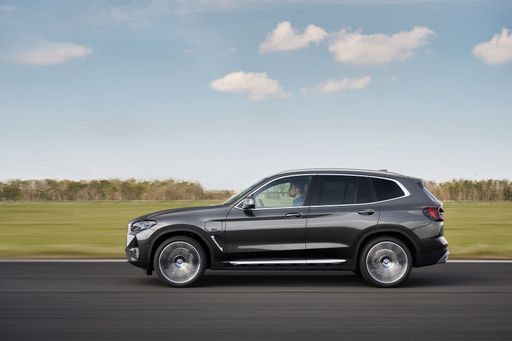
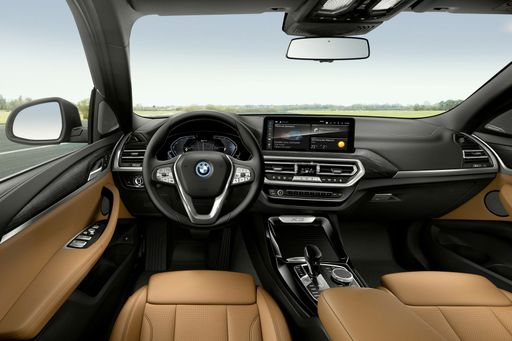
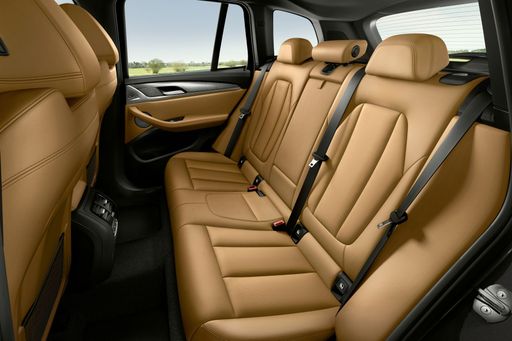
Volvo XC40
The Volvo XC40 wraps Scandinavian minimalism into a compact, city-ready SUV with a premium cabin that feels both practical and grown-up. It will suit buyers who prize safety, clever storage and a composed ride, proving that small dimensions don't mean small personality.
details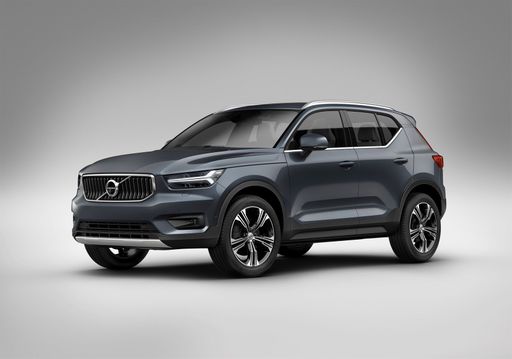


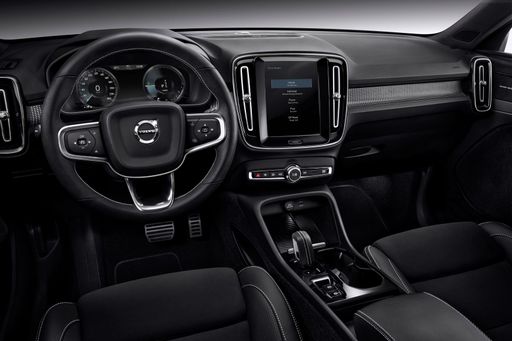

Costs and Consumption |
|
|---|---|
|
Price
51300 - 72400 £
|
Price
36800 - 47200 £
|
|
Consumption L/100km
2.8 - 7.7 L
|
Consumption L/100km
6.50 L
|
|
Consumption kWh/100km
-
|
Consumption kWh/100km
-
|
|
Electric Range
88 km
|
Electric Range
-
|
|
Battery Capacity
-
|
Battery Capacity
-
|
|
co2
64 - 175 g/km
|
co2
147 - 148 g/km
|
|
Fuel tank capacity
60 - 65 L
|
Fuel tank capacity
54 L
|
Dimensions and Body |
|
|---|---|
|
Body Type
SUV
|
Body Type
SUV
|
|
Seats
5
|
Seats
5
|
|
Doors
5
|
Doors
5
|
|
Curb weight
1930 - 2140 kg
|
Curb weight
1688 kg
|
|
Trunk capacity
460 - 570 L
|
Trunk capacity
452 L
|
|
Length
4755 mm
|
Length
4425 mm
|
|
Width
1920 mm
|
Width
1863 mm
|
|
Height
1660 mm
|
Height
1652 mm
|
|
Max trunk capacity
1700 L
|
Max trunk capacity
1328 L
|
|
Payload
570 kg
|
Payload
532 kg
|
Engine and Performance |
|
|---|---|
|
Engine Type
Petrol MHEV, Diesel MHEV, Plugin Hybrid
|
Engine Type
Petrol MHEV
|
|
Transmission
Automatic
|
Transmission
Automatic
|
|
Transmission Detail
Automatic Gearbox
|
Transmission Detail
Dual-Clutch Automatic
|
|
Drive Type
All-Wheel Drive
|
Drive Type
Front-Wheel Drive
|
|
Power HP
197 - 398 HP
|
Power HP
163 - 197 HP
|
|
Acceleration 0-100km/h
4.6 - 7.8 s
|
Acceleration 0-100km/h
7.6 - 8.6 s
|
|
Max Speed
215 - 250 km/h
|
Max Speed
180 km/h
|
|
Torque
330 - 670 Nm
|
Torque
265 - 300 Nm
|
|
Number of Cylinders
4 - 6
|
Number of Cylinders
4
|
|
Power kW
145 - 293 kW
|
Power kW
120 - 145 kW
|
|
Engine capacity
1995 - 2998 cm3
|
Engine capacity
1969 cm3
|
General |
|
|---|---|
|
Model Year
2024 - 2025
|
Model Year
2024
|
|
CO2 Efficiency Class
F, E, B
|
CO2 Efficiency Class
E
|
|
Brand
BMW
|
Brand
Volvo
|
What drive types are available for the BMW X3?
The BMW X3 is offered with All-Wheel Drive.




